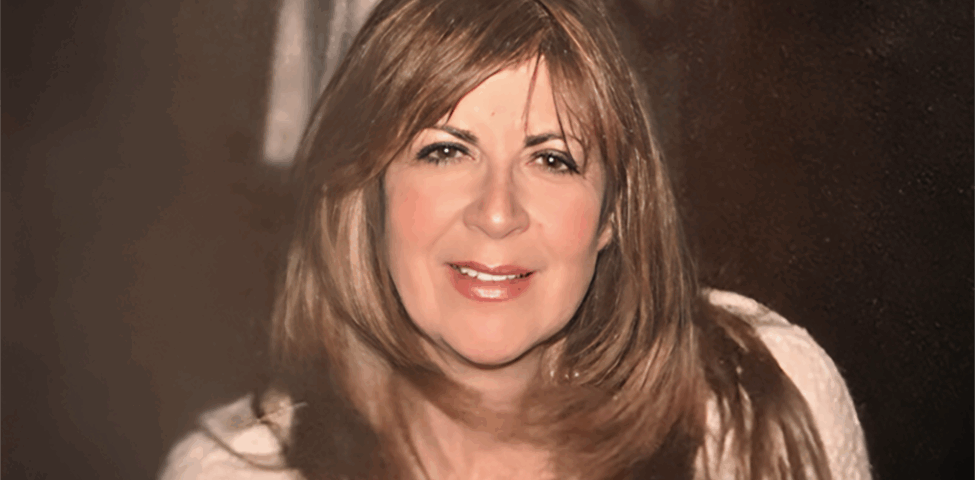
Now Enrolling: The CLEAR research study is testing a new treatment combination for patients with operable non-small cell lung cancer
July 24, 2025
Trial Results: ECOG-ACRIN research round-up – Fall 2025
November 3, 2025From caregiver to catalyst: Annie Achee is on a mission to raise awareness about sarcoma and advance research

A cancer diagnosis brings a lot of uncertainty—and that is especially true when the cancer is rare. Rare cancers are those that affect fewer than 40,000 people per year in the US. They are challenging for patients and doctors alike: because they affect fewer people, they are more difficult to study, and information might be harder to find. Rare cancer advocacy is critically important to help improve awareness and outcomes for these patients.
One rare cancer that ECOG-ACRIN Cancer Research Group (ECOG-ACRIN) researchers study is soft tissue sarcoma, which is diagnosed in about 13,400 people in the US each year. This July, in honor of Sarcoma Awareness Month, we highlight one of our sarcoma research advocates, Annie Achee, pictured above. Ms. Achee is president of the National Leiomyosarcoma Foundation , a co-founder of the Sarcoma Coalition, and a member of the Sarcoma Alliance for Research through Collaboration (SARC) Research Advocacy Council.
How did you first learn about sarcoma and what inspired you to become active in the advocacy community?
My husband, Dr. Mitchell Achee, was diagnosed with leiomyosarcoma in 2011. Leiomyosarcoma is a subtype of soft tissue sarcoma that affects the smooth muscles of organs like the intestines, stomach, and bladder. Mitch is a successful radiologist and a 14-year leiomyosarcoma survivor. Together, we both serve on ECOG-ACRIN’s Cancer Research Advocates Committee and Sarcoma Working Group. When he was first diagnosed, I didn’t know anyone who had sarcoma. I couldn’t pronounce his subtype. Finding information was difficult, and we did not receive the support we needed. Eventually, I thought, If I’m going to be an effective caregiver and help him survive this, I better learn about it.
So, that is what I did. I researched leiomyosarcoma thoroughly. Through that process, I found the National Leiomyosarcoma Foundation, which was started by another caregiver in honor of his wife. I became active in the Foundation and helped build and expand their patient education programs. I wanted to give back to the community so that others didn’t have to go through what we went through. Receiving a sarcoma diagnosis is devastating. The fear and anxiety destroy your quality of life. I didn’t want that for other patients.
What resources and support can patients and caregivers find through the National Leiomyosarcoma Foundation?
We offer educational resources on everything from navigating diagnosis and treatment to understanding the psychosocial challenges that patients and caregivers experience. We have a library of educational videos that can be viewed on-demand, and we host monthly meetings and roundtables to connect patients, caregivers, and healthcare professionals. We also maintain a 24/7 support hotline.
Patients and caregivers can learn about the latest advances through our dedicated research-related website. We run an International Leiomyosarcoma Research Roundtable Forum, now in its seventh year, that brings together the sarcoma research community for a collaborative focus on the future of leiomyosarcoma research and clinical trials.
What do you wish more people knew about sarcoma?
I wish they understood the gravity of being diagnosed with such a rare cancer. General oncologists, and especially those in community centers, rarely encounter patients with sarcoma. To receive the best care possible, patients need to seek out a specialist at a Sarcoma Center of Excellence. These experts have the knowledge and experience to provide the most effective care. Early detection and treatment are key to survival—but doctors unfamiliar with sarcoma may misdiagnose a patient or use a less effective treatment unintentionally. Up to 40% of sarcoma cases are misdiagnosed, so patients need to be strong advocates for themselves.
What advances in sarcoma research make you hopeful?
Dr. Achee and I, and other Foundation board members, have attended annual global research meetings for many years—the American Society of Clinical Oncology, the American Association for Cancer Research, the Connective Tissue Oncology Society, and ECOG-ACRIN. All reflect robust sarcoma research initiatives, and this strengthens our hope for the future of survivorship, with more research, clinical trials, and treatment options increasing. Researchers are the heroes among us and the patient and family communities we serve are the champions of hope to help us support research.
How did you become involved with ECOG-ACRIN?
Dr. Ken Cardona, chair of the ECOG-ACRIN Sarcoma Working Group, invited Mitch and me to join. Dr. Cardona knew us from the National Leiomyosarcoma Foundation roundtables, which he always attends. We have been involved with ECOG-ACRIN for a few years now, and I’m delighted to have met many wonderful, dedicated patient advocates through our participation. I also serve on the Cardiotoxicity Subcommittee, because I’m very focused on survivorship care planning. Many people don’t realize cancer treatment can affect the cardiovascular system.
What tips do you have for caregivers?
Caregivers should try to learn as much as they can about their loved ones’ disease, so that they can effectively provide support. They play a critical role in helping their loved one navigate through all the stages of cancer, from diagnosis and treatment to survivorship. Caregiving is immediate on-the-job training: it is important to be organized, to learn about symptoms, symptom management, and coping strategies.
I used to write down questions for our sarcoma specialist, and I would send them to her several weeks before our appointment. I had a lot of questions, but I wanted to be respectful of her time. That helped ensure our visits were as productive as possible.
Caregivers also need to be sure to address their own needs and emotions. You cannot be an effective caregiver if you are not taking care of yourself. Ask for help from family and friends if you feel overwhelmed. I connected with a friend who worked as an oncology nurse, and she was incredibly helpful. You do not have to “go it alone.”
Don’t miss our related article in this issue, Ongoing Trials: A closer look at ECOG-ACRIN’s sarcoma studies.

